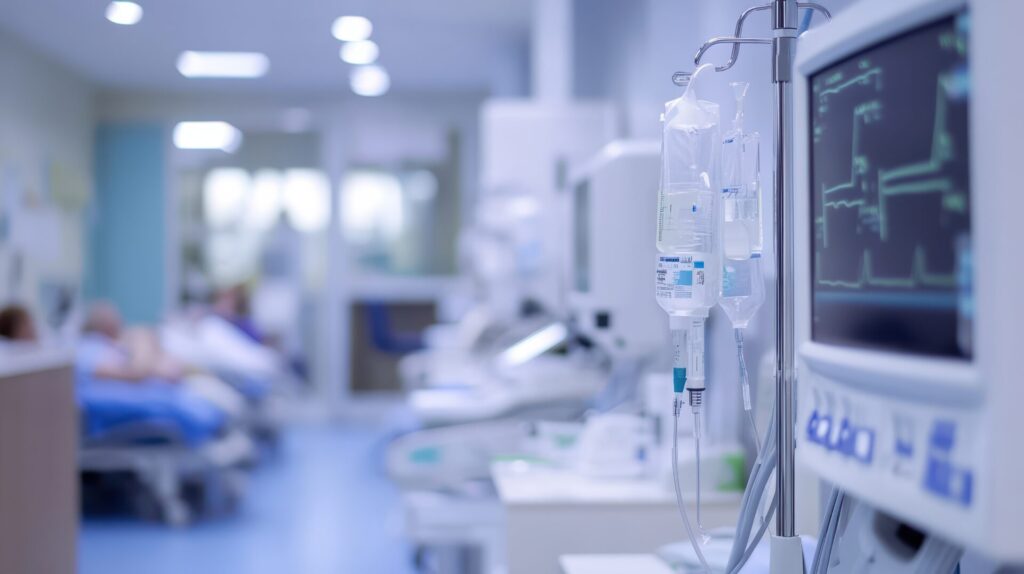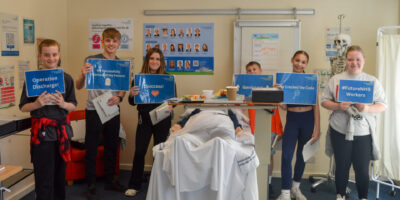By identifying this variation early, doctors have been able to offer alternative treatments, cutting their risk of another stroke by 50%.
As one of just four NHS sites in England selected for this national pilot, DBTH is helping to lead the way in using genetic testing to determine whether Clopidogrel, a commonly prescribed stroke prevention drug, is the most effective option for each patient.
The pilot, led by the National Institute for Health and Care Excellence (NICE) and NHS England, focuses on variations in the CYP2C19 gene, which influences how the body processes Clopidogrel. For some patients, genetic differences make the drug less effective, leaving them at greater risk of further strokes.
Through genetic testing, clinicians can identify these individuals and offer alternative medications tailored to their needs.
Dr Ahmad Maatouk, Stroke Consultant and project lead at DBTH, said: “It’s fantastic to see this pilot already making a real difference. We have been able to identify patients whose current treatment may not be fully protecting them and offer alternatives that could change, or even save, their lives.
“Personalised medicine has the power to transform stroke care, and we’re incredibly proud to be leading the way in bringing this innovation to our patients.”
Running from December 2024 to April 2025, the pilot is focused on high-risk patients, such as those who have had a mini-stroke or minor stroke. Findings from the pilot will help determine how genetic testing could be integrated into NHS stroke care nationwide.
Professor Sam Debbage, Director of Education and Research at DBTH, added: “This pilot is a perfect example of how research and frontline medicine work hand in hand to improve patient outcomes.
“By embedding innovation at the core of what we do, we’re not only advancing clinical knowledge but also ensuring that patients receive the very best, most effective treatments available. This is a fantastic demonstration of how research-driven healthcare can make a real and immediate difference.”
Building on these improvements, DBTH is also enhancing stroke rehabilitation with new therapies and technology to support recovery.
At Montagu Hospital, work is underway on a new robotic rehabilitation gym. This facility will feature advanced robotic equipment and virtual reality tools to help stroke patients regain movement and independence. A two-year pilot is also introducing music therapy, using methods like Melodic Intonation Therapy to support speech recovery.
DBTH has also introduced advanced CT perfusion technology to improve stroke diagnosis. This allows doctors to assess patients faster and more accurately, extending the window for treatments like thrombolysis and thrombectomy to reduce the risk of further strokes.
For more information on stroke care at DBTH, visit www.dbth.nhs.uk.




